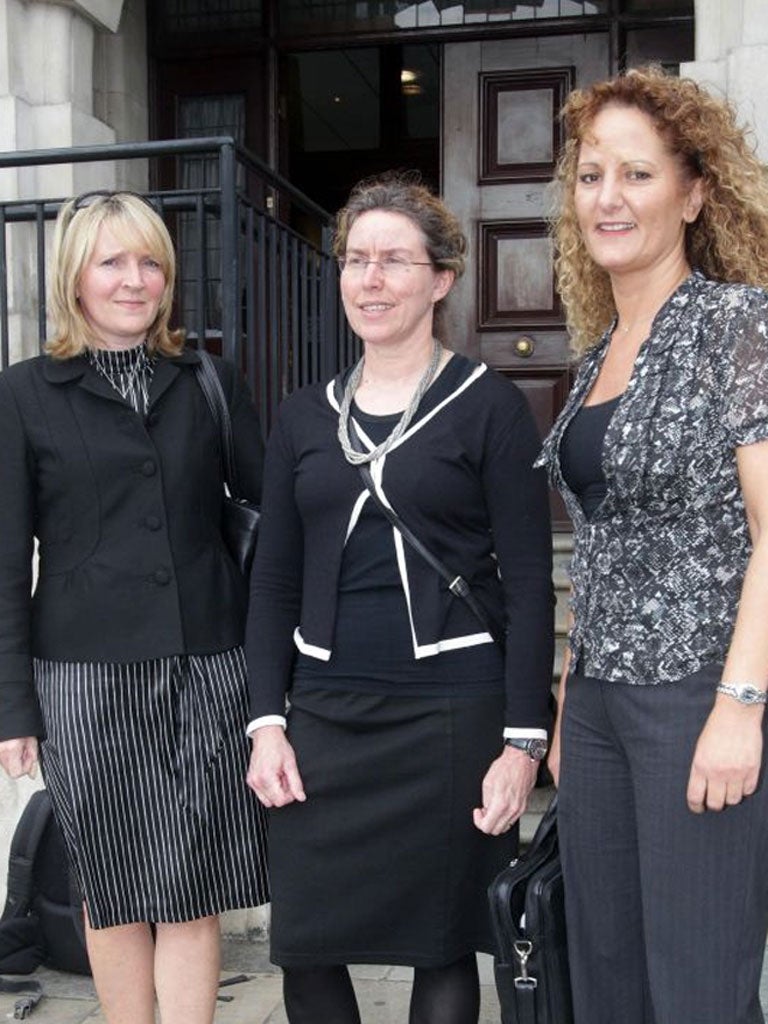Whistleblowers not protected from bullying, court rules
Government under pressure to amend law to cover reprisals from fellow workers

The law protecting whistleblowers and public safety in hospitals is failing staff and patients, the Court of Appeal has found in a landmark case brought by three nurses against an NHS trust in Manchester.
One of the country's most senior employment judges said last week that it was "striking" that the 1998 Public Interest Disclosure Act protects whistleblowers from victimisation by their employer but does not extend to reprisals or bullying by fellow workers.
Lord Justice Elias's ruling comes as the public inquiry into high death rates at Mid Staffordshire NHS Trust highlights the crucial role whistleblowers play in protecting patients.
It is the first adverse judicial comment on the Act and puts pressure on the Government to amend it. Lawyers and public safety experts warned that fewer whistleblowers would speak out unless the Government "closed the loophole". Whistleblowers say they face financial and professional ruin and dispute government claims that those acting in good faith are fully protected.
Last night, the departments of Business and Health told The Independent that they would review the legal loophole highlighted in the judgment, which has ramifications for all workplaces.
The Health minister, Lord Howe, said: "We are considering whether we need to do more to protect whistleblowers following this judgment. It was a complex case."
Peter Walsh, of Action Against Medical Accidents, said: "This judgment is very worrying for patient safety. It seems any trust can now get away with it if the harassment of whistleblowers comes from employees rather than the trust directors themselves."
The case brought by the three nurses centred on a walk-in-clinic in South Manchester. They said they suffered bullying and harassment from colleagues when they blew the whistle on a member of their team who claimed to have qualifications he did not. Senior management eventually admonished the man but took no further action. Still concerned about patient safety, the nurses pursued their complaints, but were ignored, insulted and threatened by others in the team, which became dysfunctional. NHS Manchester responded by moving two of the whistleblowing nurses; the third, a casual, was no longer given shifts.
The nurses claimed at a 2009 employment tribunal that the trust's bosses had failed to protect them, as whistleblowers, from the harassment. They lost – but an appeal tribunal in 2010 ordered a retrial. The trust successfully challenged this at the Court of Appeal, which found that although the trust had inadequately protected the nurses from harassment, it was not because they were whistleblowers.
However, the three appeal judges sent a clear message to the Government that it was for politicians and not the courts to close the loophole. "Parliament has plainly chosen to protect whistleblowers from the acts and deliberate omissions of the employer. But it is striking that no obligation is imposed on other workers not to take action against the whistleblower in these circumstances," said Lord Elias.
"I recognise the claimants feel aggrieved. I accept that [their lawyers] may be right to say that if the tribunal decision is allowed to stand it means that on one view of the matter whistleblowers are inadequately protected. If so, any remedy must lie with Parliament," he added.
Public Concern at Work, a charity that provides legal advice to whistleblowers, said: "The law should reflect the very sensible position that individuals should be protected if they are victimised by their colleagues, if we want to encourage workers to speak up."
Case study 'I was victimised'
Jennie Fecitt
A nurse with 23 years' experience, Ms Fecitt was the clinical co-ordinator for three NHS Manchester walk-in centres. She was one of three nurses (the others were Felicity Hughes and Annie Woodcock) who claim they were bullied and victimised by fellow workers after they blew the whistle on a colleague who had claimed to have qualifications he did not.
"We were worried about our patients, who we have a duty to protect. It was a question of integrity: if he could lie about his qualifications, what else would he lie about? What we didn't know until the tribunal was that senior managers knew he didn't have the correct qualifications two years earlier and that a competence assessment was never carried out.
"But other nurses thought we were on a witch hunt and started shutting doors in our faces and ignoring us. My daughter received a threatening phone call. We kept reporting that we were being victimised, but nothing happened; we took out formal grievances but they were parked. Then me and Annie were redeployed and Felicity's hours were stopped. The tribunal acknowledged that NHS Manchester didn't do enough to stop the victimisation, but said the redeployment was about the malfunctioning team not whistleblowing. We have no regrets but employers may use our judgment to avoid protecting whistleblowers so I hope this will trigger immediate review of the legislation and Parliament will not put it on the back burner."
Join our commenting forum
Join thought-provoking conversations, follow other Independent readers and see their replies
Comments